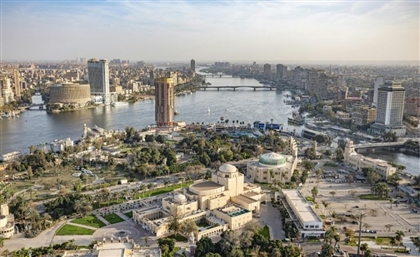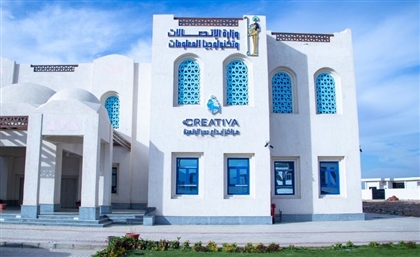Ashoka Arab World: Are Social Businesses the Future of NGOs?
As non-profit organisations continue to face stumbling blocks in Egypt and the wider region, Ashoka does things a little differently. Valentina Primo meets the Middle Eastern branch's founders to find out more...

When Iman Bibars launched Ashoka Arab World in 2003, she was convinced the Middle East was full of dynamic people striving to transform the societal issues underlying the region’s endemic challenges. So she founded the Arab branch of an organisation born to the spirit of a man who conceived entrepreneurship as a central building block for development and social change.
“Ashoka’s founder, Bill Dreyton, was working in business and realised that the social sector was very traditional, moving more slowly, and highly dependent on donors,” says Ashoka Arab World’s Marketing Officer, Sama Singer.
The rise of social entrepreneurs has seen a boom in Egypt in the past four years, in a context where a government crackdown on NGOs has seen 1,100 of them outlawed and 571 dissolved, according to Social Solidarity Minister Ghada Wali. As donor funding cuts down and more and more non-profit entities are shut down, many initiatives turn to the social business model to incite social change while ensuring sustainability.
But Ashoka Arab World does things differently. With a vision to harness sustainable initiatives by supporting entrepreneurs, the organisation has supported 80 entrepreneurs through a fellowship programme that stretches across 10 countries in the Middle East, from Morocco to Saudi Arabia and Kuwait.
“We are pushing them to enter the business sector and provide services to ensure the sustainability of the initiative, like capacity building, trainings, media and marketing workshops to help promote their work,” Singer explains.
Far from the incubator models that support entrepreneurs while keeping shares of the company’s revenue, Ashoka offers a monthly stipend to its fellows, which is considered a sort of salary. “The idea is for the entrepreneur to leave their job and be able to focus on their own project,” she says. “The stipend lasts for three years, although the amount depends on many factors: whether he has a family or not, or the country he is based in.”
Changemakers in action
Amani El Tunsi started her online radio station, Banat wa Bas (Girls Only), aiming to provide a safe space for women and girls to speak about taboo issues left behind by mainstream media. Elected an Ashoka fellow in 2013, El Tunsi started off with her own computer and a free website, and rapidly began receiving emails and, by the end of the first year, she had more than 5 million listeners across different Arab countries.

Amani El Tunsi and her radio station Banat wa Bas garnered 5 million listeners within a year.
Given her success, she continued to build the initiative, according to the needs of listeners and, as many girls appeared to be suffering from drug addiction and did not know where to go, she launched a rehabilitation center called U-Turn and, in 2014 created a free magazine which is already in its fifth edition.
“Each fellow is a leader in innovation in their field, whether it is in women empowerment, children’s rights, or environment,” says Singer, as she points out to the work of Alaa Murabit, a Libyan fellow selected in 2014 who came up with a ground-breaking method to shift the paradigm around the role of women in Libyan society: using religious discourse, a tactic historically used to perpetuate the problem. In 2015, Murabit led a TedX Women talk that made waves across the globe.
It was a family medical emergency that inspired Egyptian fellow Hisham Kharma to create the first online platform to link blood donors with recipients. His initiative Law Andak Dam aggregates all blood donation initiatives and maps out areas where there is availability or shortage of blood in Egypt. The online community is the first to group all parties, including patients in need of blood, donors, hospitals, blood banks, and citizen sector organisations, under one umbrella.
Once a fellow, always a fellow
“Everyone is now looking at social entrepreneurship with the criteria that they should be generating their own revenue,” says Singer. “But we see it from a different perspective; when you speak about initiatives to counter sexual harassment or combatting HIV, for example, it is very hard to generate profit. We definitely care about sustainability, but you don’t have to be a company,” she explains.
Thus, focusing more on the entrepreneur rather than the character of the enterprise itself, the organisation offers them a stipend and the necessary assistance to register their initiative as a company or as an NGO, according to the fellow’s choice.
“We don’t really care about the profit or non-profit models that they choose as long as it serves the cause they are working for. We consider our fellows as partners, we are a platform, so we open to any kind of collaboration with other entities and entrepreneurs,” she says.
Singer emphasises that in the organisation, “once a fellow, always a fellow,” as Ashoka continuously support entrepreneurs, regardless what they do with their projects. “The only thing that stops is the stipend, after three years,” she says, as she recounts the 49 Egyptian fellows that continuously reach out to the entity in search of support.
But the organisation, which counts with branches in 70 countries across the world, not only harnesses entrepreneurship through fellowships. Recently, Ashoka Global implemented the Empathy Initiative aimed at promoting empathetic values in schools, turning their students into changemakers. “We did a project tailored to Egyptian schools, working in governmental schools in Sahel, where we gave students an interactive learning sessions on values of cooperation and leadership that they can embrace. By the end of the project, they were creating their own community initiatives,” explains Singer.
For Egyptian changemakers looking into turning their ideas into initiatives, applying comes as a simple process: there are no deadlines and no maximum number of candidates. The only requirement is to have an ongoing initiative, with visible results. Interested candidates need to access their website and provide information about their project, after which they will go through a selection process that usually takes six months.
- Previous Article Bassita: Click Funding for a Better Egypt
- Next Article New App Lets You Book A 'Vespa' For Your Next Ride






















